20 Natural Sleep-Inducing Habits That Help You Gently Drift Into Dreamland
In a world wired for urgency, falling asleep shouldn’t feel like another item on your to-do list—but for many, it does. The constant hum of screens, stress, and overstimulation leaves our minds restless and our bodies tense, making quality sleep harder to come by. But true rest isn’t just about turning off the lights—it’s about turning down the noise, inside and out. That’s why we’ve expanded our guide to 20 Natural Sleep-Inducing Habits That Help You Gently Drift Into Dreamland—a thoughtful collection of calming, evidence-based practices designed to invite better sleep without pills or pressure. From circadian-friendly light exposure to nighttime journaling, herbal teas, and mindful rituals, these habits help you reset, unwind, and restore balance. Whether you’re battling insomnia or just craving deeper rest, these gentle strategies can transform your nights—one intentional step at a time. Because real sleep isn’t just about closing your eyes. It’s about opening space for true recovery.
1. Understanding Sleep Hygiene
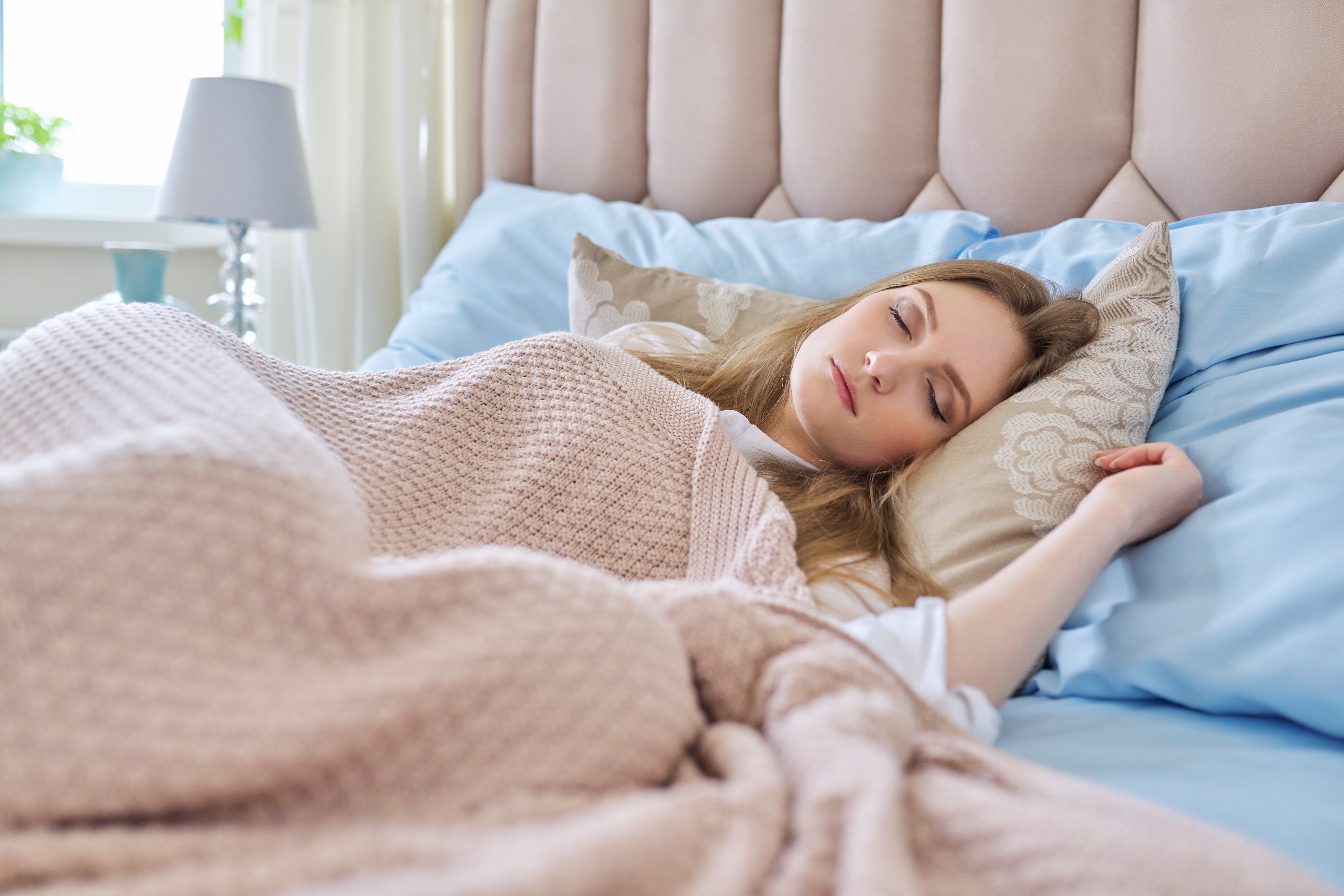
Sleep hygiene refers to the practices and habits that are conducive to sleeping well on a regular basis. It encompasses a range of behaviors and environmental factors that can significantly impact the quality of your sleep. Good sleep hygiene begins with maintaining a consistent sleep schedule, going to bed and waking up at the same time every day, even on weekends. This regularity helps regulate your body's internal clock, making it easier to fall asleep and wake up naturally. Another crucial aspect of sleep hygiene is creating a restful environment. Your bedroom should be a sanctuary for sleep, free from distractions such as electronic devices, bright lights, and noise. Consider investing in comfortable bedding and ensuring the room is cool and dark. Additionally, establishing a relaxing pre-sleep routine can signal to your body that it's time to wind down. Activities such as reading, taking a warm bath, or practicing gentle yoga can help transition your mind and body into a state of relaxation. By prioritizing sleep hygiene, you lay the foundation for a restful night's sleep, setting the stage for the other habits discussed in this article.
2. The Power of Routine

Establishing a bedtime routine is a powerful tool in promoting consistent, high-quality sleep. Just as children benefit from a predictable bedtime ritual, adults can also find comfort and relaxation in a structured evening routine. This routine should begin at least an hour before bedtime, allowing ample time for the mind and body to transition from the busyness of the day to a state of rest. Start by dimming the lights in your home to signal the end of the day and help increase the production of melatonin, the hormone responsible for regulating sleep. Incorporate activities that you find calming and enjoyable, whether it's sipping on a cup of herbal tea, listening to soothing music, or engaging in mindfulness meditation. Avoid stimulating activities such as intense exercise, screen time, or consuming caffeine or alcohol, as these can interfere with your ability to fall asleep. Consistency is key; by following the same routine each night, you train your brain to associate these activities with sleep, making it easier to drift off when your head hits the pillow.
3. Mindful Meditation and Breathing Techniques
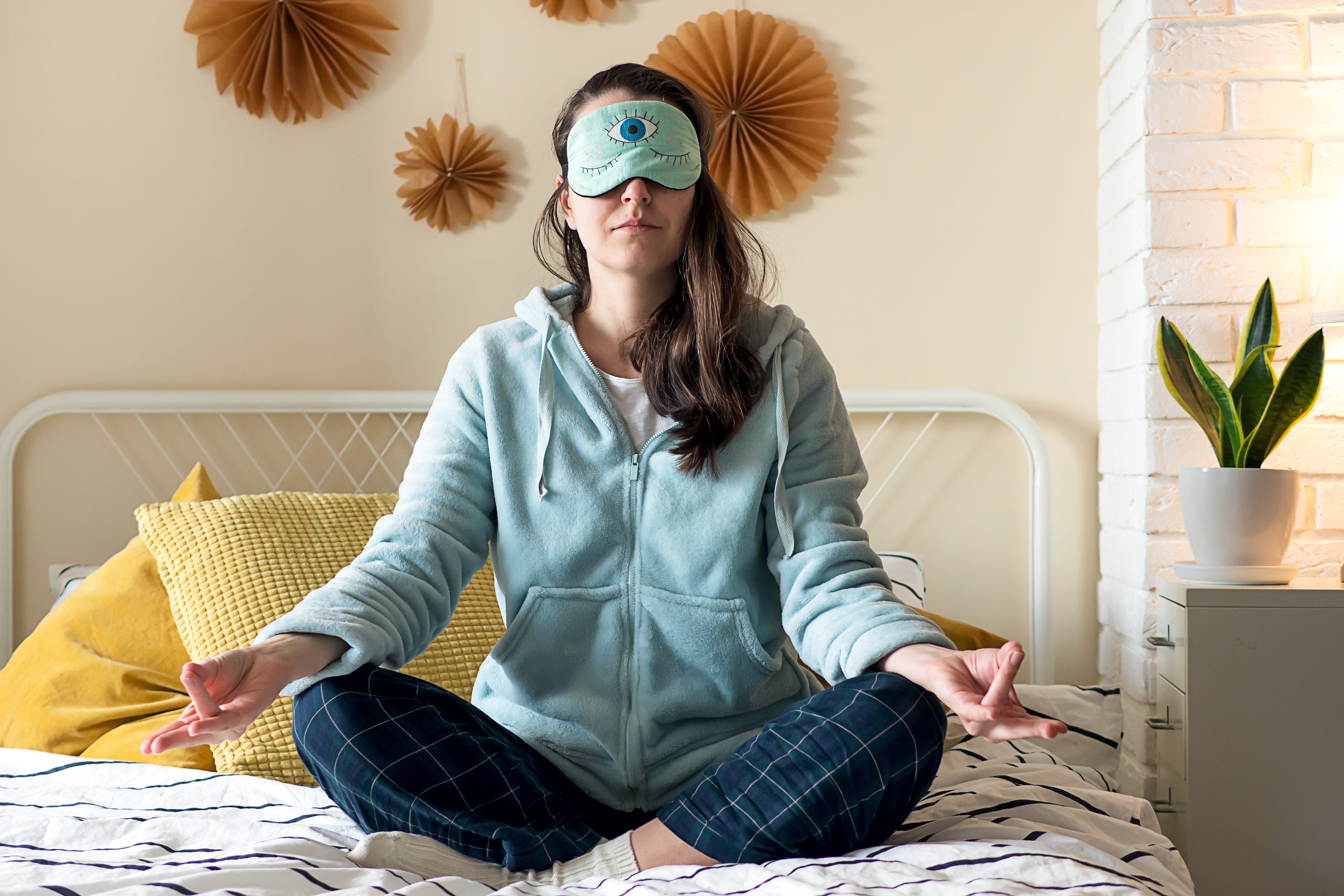
Mindful meditation and breathing exercises are potent allies in the quest for better sleep. These practices focus on calming the mind and relaxing the body, making them ideal for winding down before bed. Mindfulness meditation involves paying attention to the present moment without judgment, often through focused breathing or body scans. This practice can reduce stress and anxiety, common culprits of sleep disturbances. To incorporate mindfulness into your bedtime routine, find a quiet space where you can sit or lie comfortably. Close your eyes and take slow, deep breaths, focusing on the sensation of the air entering and leaving your body. If your mind begins to wander, gently bring your focus back to your breath. Another effective technique is progressive muscle relaxation, which involves tensing and then relaxing each muscle group in the body. This not only helps release physical tension but also promotes a sense of calmness and tranquility. Regular practice of these techniques can improve sleep quality by reducing the time it takes to fall asleep and increasing the duration of deep sleep stages.
4. Exercise: The Daytime Sleep Booster

Regular physical activity is a well-documented contributor to better sleep. Exercise helps regulate the body's internal clock, reduces stress, and can alleviate symptoms of insomnia. Engaging in moderate aerobic exercise, such as walking, jogging, or swimming, can increase the amount of slow-wave sleep, the deep, restorative stages of sleep. It is important to time your workouts appropriately; exercising too close to bedtime can have the opposite effect, as it raises your heart rate and body temperature, making it harder to fall asleep. Aim to complete any vigorous exercise at least three hours before bed. If evening is the only time you can fit in a workout, opt for low-impact activities like yoga or stretching, which can promote relaxation and help prepare your body for sleep. Beyond its direct effects on sleep, regular exercise also improves overall health, boosting mood and energy levels during the day and contributing to a more balanced lifestyle. By making physical activity a regular part of your routine, you not only enhance your sleep but also your overall well-being.
5. Nutrition: Eating for Better Sleep

What you eat and drink can have a profound impact on your sleep quality. Certain foods and beverages contain nutrients and compounds that promote sleep, while others can disrupt it. To optimize your diet for better sleep, focus on consuming a balanced mix of carbohydrates, proteins, and healthy fats throughout the day. Foods rich in tryptophan, such as turkey, chicken, and nuts, can increase the production of serotonin and melatonin, hormones that regulate sleep. Additionally, complex carbohydrates found in whole grains, fruits, and vegetables can help stabilize blood sugar levels and promote relaxation. Be mindful of your caffeine and alcohol intake, as both can interfere with sleep. Caffeine, found in coffee, tea, and chocolate, is a stimulant that can keep you awake if consumed too close to bedtime. Similarly, while alcohol may initially make you feel drowsy, it can disrupt the sleep cycle and lead to fragmented sleep. To support healthy sleep, aim to have your last meal at least two to three hours before bed, and consider incorporating sleep-promoting snacks like a small bowl of oatmeal or a banana.
6. The Role of Light Exposure
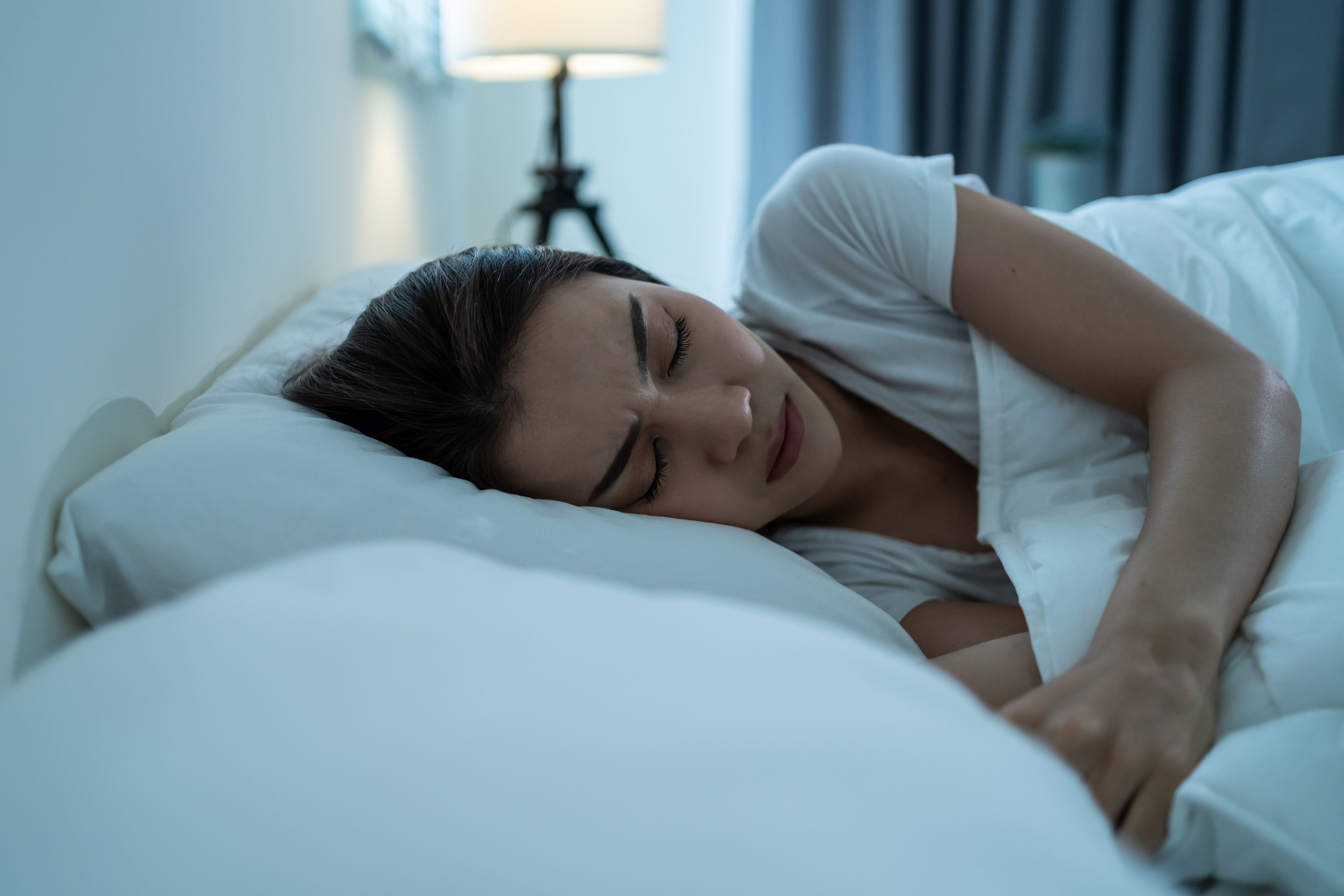
Exposure to natural light is crucial for regulating your sleep-wake cycle, also known as the circadian rhythm. This internal clock is influenced by environmental cues, with light being the most powerful. During the day, exposure to sunlight helps keep your circadian rhythm aligned with the natural day-night cycle, promoting alertness and mood. Aim to spend at least 30 minutes outside each day, preferably in the morning, to reap the benefits of natural light exposure. If getting outside is not possible, consider using a light therapy box, especially during the darker winter months. In the evening, it is equally important to minimize exposure to artificial light, particularly the blue light emitted by electronic devices. Blue light can suppress the production of melatonin, making it harder to fall asleep. To counteract this, use blue light blocking glasses or apps that reduce blue light emissions from screens. By managing your light exposure, you can help maintain a healthy circadian rhythm, making it easier to fall asleep and wake up naturally.
7. Creating a Sleep-Inducing Environment
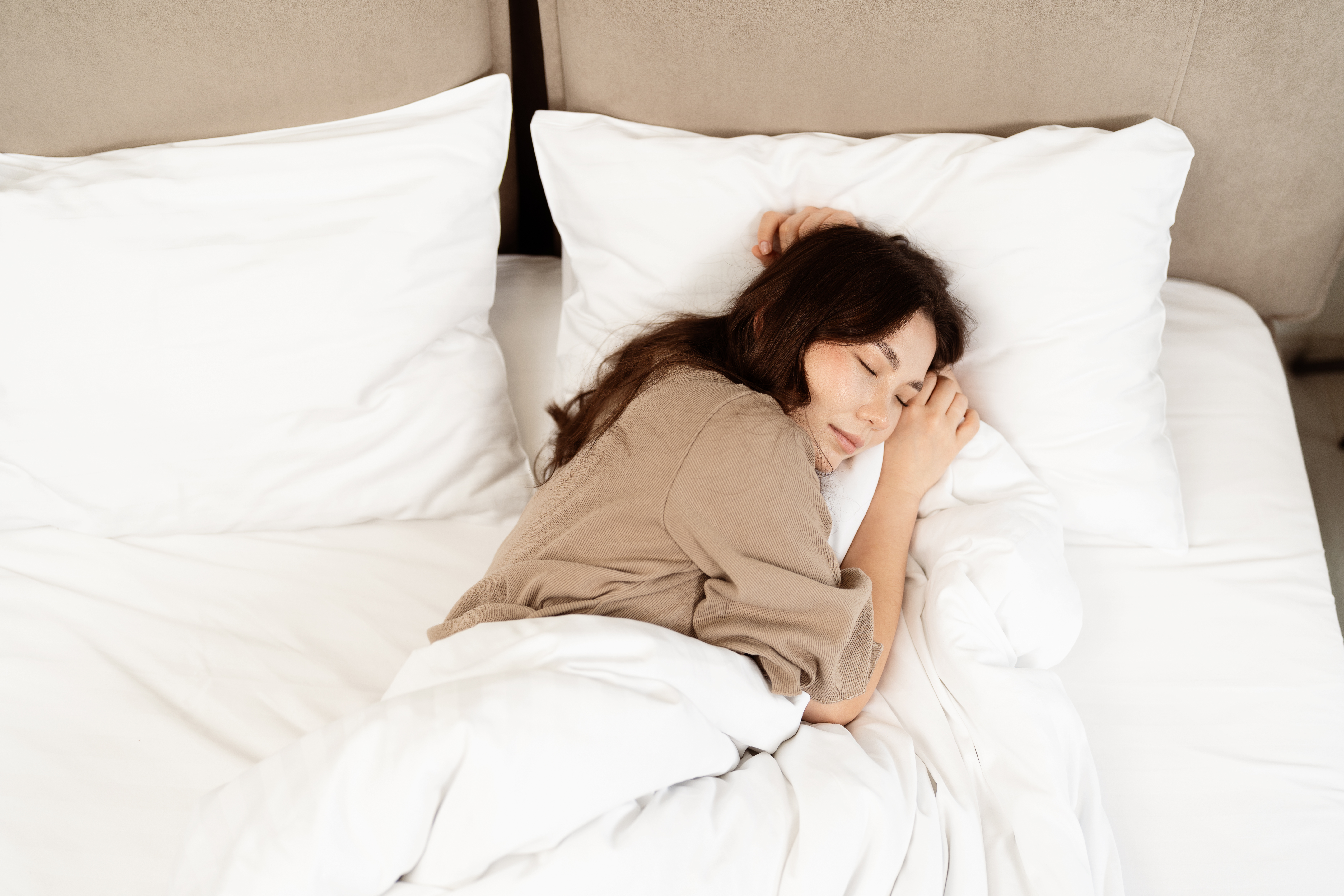
The environment in which you sleep plays a significant role in the quality of your rest. A sleep-inducing environment is one that is cool, quiet, and dark, free from distractions and discomfort. Start by assessing your bedroom setup; your mattress and pillows should provide adequate support and comfort, and your bedding should be conducive to maintaining a comfortable temperature. Consider using blackout curtains or an eye mask to block out unwanted light, and earplugs or a white noise machine to drown out disruptive sounds. The temperature of your room can also affect your sleep; most people sleep best in a slightly cool environment, around 60 to 67 degrees Fahrenheit. Additionally, incorporating calming scents, such as lavender or chamomile, through essential oils or candles can further enhance relaxation. By tailoring your sleep environment to your preferences, you create a personalized sanctuary that invites rest and rejuvenation, setting the stage for a peaceful night's sleep.
8. Embracing Nature's Calming Effects

Nature has a profound ability to calm the mind and body, making it a powerful ally in promoting sleep. Spending time in natural settings, whether it's a park, garden, or forest, can reduce stress, lower blood pressure, and improve mood, all of which contribute to better sleep. The practice of forest bathing, or shinrin-yoku, involves immersing oneself in a forest environment, engaging all the senses to connect with nature. This practice has been shown to reduce cortisol levels and enhance relaxation, making it an excellent pre-sleep activity. If access to natural spaces is limited, consider bringing elements of nature into your home. Houseplants, nature sounds, and natural materials can create a soothing atmosphere that promotes tranquility. Additionally, exposure to natural light and fresh air during the day can help regulate your sleep-wake cycle, making it easier to fall asleep at night. By embracing nature's calming effects, you can enhance your sleep quality and overall sense of well-being.
9. The Importance of Stress Management
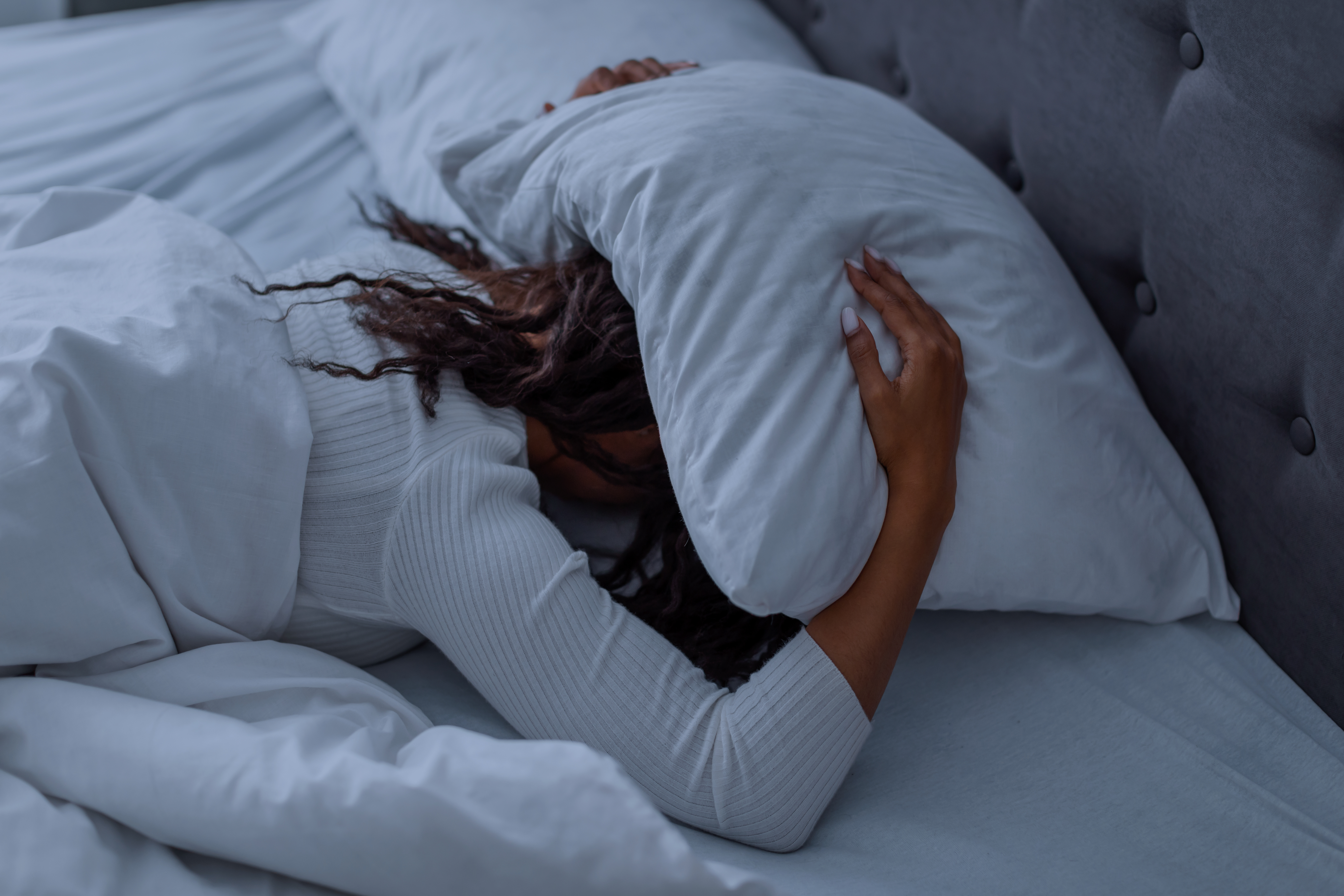
Stress is a common barrier to sleep, often leading to restless nights and difficulty falling asleep. Managing stress effectively is crucial for improving sleep quality and overall health. Begin by identifying the sources of stress in your life and exploring strategies to address them. Mindfulness practices, such as meditation and yoga, can help cultivate a sense of calm and presence, reducing the impact of stress on your mind and body. Journaling is another effective tool for processing emotions and clearing your mind before bed. Writing down your thoughts and concerns can help release them, preventing them from interfering with your sleep. Additionally, consider incorporating relaxation techniques, such as deep breathing or progressive muscle relaxation, into your bedtime routine to help ease tension and promote relaxation. By prioritizing stress management, you create a more peaceful internal environment, making it easier to drift into restful sleep.
10. Limiting Evening Screen Time

In our tech-saturated world, screens are often the last thing we see before sleep—and that’s a major problem. The blue light emitted from smartphones, tablets, laptops, and TVs interferes with melatonin production, the hormone responsible for regulating sleep. This disruption can delay sleep onset, reduce sleep quality, and shift your natural circadian rhythm. But it’s not just the light—it’s also the mental stimulation. Social media scrolling, news updates, and binge-worthy shows can all keep your brain in high gear when it should be winding down. To avoid this, implement a “digital sunset” at least an hour before bed. Replace screen time with relaxing, screen-free activities like reading a physical book, journaling, stretching, or listening to calming music or audiobooks. If you must use devices late at night, enable blue light filters or night mode, and dim the brightness. Creating tech-free time before bed sends a clear signal to your body and mind: it’s time to rest. Over time, this habit can significantly improve your ability to fall—and stay—asleep.
11. Sip Herbal Sleep Teas

Herbal teas have long been cherished for their calming properties, and certain blends can be especially helpful for sleep. Chamomile, valerian root, passionflower, and lemon balm are among the most effective natural sedatives. These herbs interact with neurotransmitters like GABA, which help reduce anxiety and promote relaxation. Sip a warm, caffeine-free cup about 30 minutes before bed as part of your wind-down routine. The ritual itself signals to your body that it’s time to relax, and the gentle herbs do the rest. Just avoid overconsuming liquids too close to bedtime to prevent late-night trips to the bathroom.
12. Keep a Gratitude Journal

If racing thoughts keep you up, try ending your day with gratitude. Studies show that writing down three to five things you’re grateful for before bed can lower stress and increase feelings of contentment—both of which support better sleep. This habit shifts your mental focus from anxiety to appreciation, creating a peaceful mindset as you drift off. Use a dedicated notebook or journal, and keep it by your nightstand. Over time, this simple practice not only improves sleep but also boosts your mood and mental health. It’s a tiny nightly act with a powerful emotional payoff.
13. Try Magnesium-Rich Foods or Supplements

Magnesium is a mineral that plays a key role in sleep regulation by helping the body relax and quiet the nervous system. Low magnesium levels are linked to poor sleep and insomnia. You can increase your intake through foods like almonds, spinach, pumpkin seeds, and dark chocolate—or by taking a magnesium supplement (consult your doctor first). Magnesium glycinate and citrate are the most sleep-friendly forms. Some also find success with magnesium oil or Epsom salt baths before bed. However you choose to boost it, this nutrient might be the missing link in your sleep puzzle.
14. Use Weighted Blankets

Weighted blankets offer deep pressure stimulation, which mimics the sensation of being hugged—calming the nervous system and boosting serotonin and melatonin levels. This can help ease anxiety, lower your heart rate, and make it easier to fall asleep. Choose a blanket that’s around 10% of your body weight for optimal comfort. Many people report falling asleep faster and staying asleep longer when using one. If you’ve struggled with restlessness or nighttime anxiety, a weighted blanket could offer a comforting, grounded solution that doesn’t require medication or major lifestyle changes.
15. Experiment with Soundscapes or Sleep Frequencies

The right sounds can lull your brain into sleep mode. White noise machines, nature soundtracks, or soft rain recordings can block out disruptive noise and calm your mind. Some people also benefit from binaural beats or delta wave frequencies—audio patterns designed to mirror brainwave activity during deep sleep. These can be found on streaming platforms or meditation apps. Use headphones if needed, or play them softly through a speaker near your bed. Just be sure the sound is consistent and relaxing—not distracting. Finding your perfect sleep soundscape can be a game-changer.
16. Keep Your Feet Warm

It may sound odd, but cold feet can keep you awake. When your feet are warm, blood vessels dilate, which helps lower your core body temperature—a signal to your brain that it’s time to sleep. Wearing socks to bed or using a hot water bottle at your feet can help trigger this process. Studies show that warm feet are linked to faster sleep onset. Choose breathable, loose-fitting socks made from natural fibers for comfort. It’s a small adjustment with surprisingly big results, especially for those who tend to toss and turn.
17. Establish a “Worry Window”

One major barrier to falling asleep is the brain’s tendency to process stress right before bed. Instead of suppressing those thoughts, give them a designated space. Schedule a “worry window” earlier in the evening—15–20 minutes where you write down your concerns, to-dos, or mental clutter. Close the notebook when time’s up. This practice helps “offload” worries so your brain doesn’t bring them to bed with you. Pair it with a short breathing or gratitude exercise to shift your emotional state. It’s like emotional hygiene—clearing your mental space before you enter sleep.
18. Limit Alcohol as a Nightcap

Although alcohol can make you drowsy, it disrupts the deeper stages of sleep and causes frequent nighttime awakenings. It can also interfere with REM sleep and lead to dehydration, both of which reduce sleep quality. If you enjoy a drink, try to consume it at least 3–4 hours before bed—and hydrate with water in between. Better yet, swap your nightcap for a calming herbal tea or a magnesium-rich snack. Prioritizing true rest over temporary sedation helps your body recover more fully and leaves you feeling more refreshed in the morning.
19. Incorporate Gentle Evening Movement

If your mind or body feels restless in the evening, gentle movement can help release that tension. Try slow-paced yoga, tai chi, or light stretching. These activities activate the parasympathetic nervous system—the “rest and digest” mode—which prepares your body for deep relaxation. Focus on deep, mindful breaths as you move. A short 10–15 minute session before bed can be enough to ease tight muscles, calm your mind, and transition you into sleep mode. Bonus: regular evening movement also improves flexibility, digestion, and mood over time.
20. Sync with Your Chronotype

Your chronotype is your body’s natural sleep-wake preference—early bird, night owl, or somewhere in between. Understanding your chronotype can help you schedule your sleep and daily tasks more effectively. For instance, forcing a night owl to sleep at 9 PM may backfire, just as asking an early bird to stay up late can ruin their sleep quality. Observe your natural energy peaks and dips, and try to align your bedtime with your personal rhythm. There’s no one-size-fits-all bedtime—but syncing with your biological clock leads to more restful, restorative sleep.
Better sleep isn’t a luxury—it’s a necessity. And as you’ve now seen through these 20 natural, sleep-inducing habits, it doesn’t require a complete lifestyle overhaul—just small, intentional shifts. From syncing with your chronotype to sipping herbal tea, winding down with gentle movement, or journaling away your worries, each habit is a quiet invitation for your body to rest, repair, and reset. Sleep isn’t just the end of your day—it’s the foundation for how you show up in life. These strategies go beyond counting sheep; they’re rooted in mindfulness, biology, and balance. So whether you’re battling insomnia or just craving deeper, more restorative rest, these habits offer a holistic path forward—one that honors both your body and mind. The journey to better sleep begins with awareness but thrives on consistency. Start where you are. Try what resonates. And let every night become a sanctuary of calm, clarity, and renewal. Sweet dreams are earned—now, you’re equipped to claim them.
